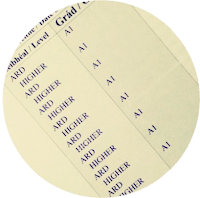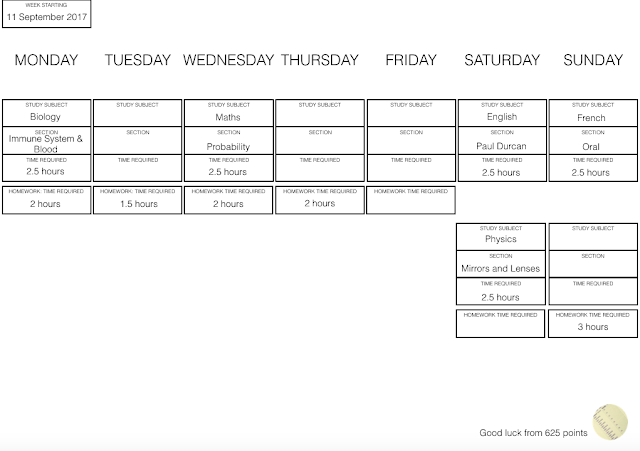Find ready-made Leaving Cert study plans here. You may also like our Mock Study Planner. Some last minute pre-exam tips from us in this Irish Times article, Trust your process, expert advice on how to beat exam anxiety.
We get a lot of messages like this:
I’m going into 6th Year this year! I have been following all of your posts and I find them very helpful!
I want to get a few things sorted now before I get back to school. I personally would love to have a study plan drawn up so that I can stick to it come September on although, I’m struggling with this as I don’t know how it’s meant to look or how long I’m meant to spend doing homework and study each night. What would you recommend? I’m slow at learning things and when I do learn a topic, I’ve it forgotten within the following month or week!!!
I really want to work hard this year, but often find I go completely off point when I’m studying.
Any tips? I would really appreciate it.
Thank you :)”
All of this methodology stuff is described in detail here, but let’s go through the basics. It’s a good idea to have a study plan. I’m sure you’ve heard plenty yada-yada as to why, so let’s just get into the meaty part.
Get on top of your study plans
Step I. Find out how you will be assessed
Step II. Split your entire workload into sections
I suggest you use this study plan for Higher Level English. Download it, print it off and mark off the relevant sections once you’re done! It makes it very obvious what you are and aren’t covering. We have plans for Irish Paper 1, Irish Paper 2, Irish Oral, Maths Paper 1, Maths Paper 2. There is also French, Biology, Chemistry ready to go – and we’re adding more soon – please subscribe to get these by email, it’s free.
Step III. Map out when you are going to do each section
or this:
Obviously, some sections will take less time and some will take more. If you are going for above 500 points, I would recommend that you revise each section at least twice. This more or less means you are doing a section on each subject in any given week. That’s 2-4 hours of study a night for most people going for over 500 points.
You can print a blank one and fill it out yourself. We also have one for the times that you’re not in school (midterm, Christmas, Easter, etc). You will get them if you subscribe to our emails (it’s free).
How much time to spend on homework vs study
To revise a section meaningfully you need two to four hours, depending on how rusty you are. It’s a lot of work, but it’s better than repeating the Leaving Cert as a result of not working hard enough.
So let’s say you are revising a poet you’ve done in fifth year and haven’t looked at since. You will realistically need three hours or so. If you are revising a section every 2.5 days, that means that you will have to spend an hour each night studying on top of your homework.
People who aim for very high points tend to revise everything at least twice throughout the year. So that brings the amount of work per night to, let’s say, to 2.5 to three hours of study.
Two to three hours of study plus an hour of homework: that sounds about right. There are some badass geniuses who get away with much less and some diligent pencil-sharpening folder-organising obsessives who will do much more. Some people who didn’t do a lot in fifth year will really knuckle down and do more, productively, but these people are quite rare.
How to not forget what you learnt, go off point and waste time doing busy work?
Here is a simple recipe:
1. Don’t spend too much time making your own notes
We all have a friend who spends hours and hours perfecting their notes. Well, if you care about your friend, gently encourage them to do some papers. They are likely to find that they aren’t quite as confident answering questions as they are going over their notes. And, of course, answering questions is what you will be asked to do in the real exam.
There will of course be fanatics hells bent on doing a high points course who will both make and learn their notes – and nothing will stop them… However, virtually all of these people regret having spent so much time on study when they could have used great study materials they didn’t have to make themselves and also had a life in sixth year – don’t ask me how I know 
2. Do lots of papers
While you are doing your papers, use notes. So don’t revise a chapter by saying, yep, page 57-72, here I come! No. Get the papers. Get a question relevant to your chapter. Start answering it, even if you haven’t a clue. And when you haven’t a clue/ got stuck, go to the notes and see what they say. You may end up having to read the whole chapter of notes if you are rusty, but still it’s worth doing it this way. Why? Going to the notes while you have a specific question in your head, actively seeking out information, is infinitely more efficient than rereading the same sentence because you’re bored out of your tree through passive revision.
Passive reading vs active seeking – which do you think works better?
| Study for exams by answering past papers. Go to the notes to look for specific things and occasionally have a look at the marking schemes. |
Why notes and not a book?
The lack of freedom to choose exactly what you want to learn means lack of interest which in turn means you want to get to the point. Plus, people going for high points need to know what works in practice because they can’t take the risk. So in reality, you are studying for exams. If you are looking to maximise the return of your effort, you need notes from someone who has fought the same battle as you are going into and won.
What about revision books?
Similarly, if your teacher’s approach isn’t working for you, you will need something more detailed than a revision book and something more practical than a textbook.
A revision book doesn’t really explain stuff, it just restates in a concise way. Much as publishers try to make student-centred exam-focused resources, the only truly student-centred exam-focused stuff is that made by former students who aced the exam.
9 Tips for Study Motivation
Why Your Phone May Sabotage Your Leaving Cert
Vitamins, Supplements and Wellbeing During The Leaving Cert
Leaving Cert Grinds: Do I Need Them?
Mindfulness as a Way To Curb Anxiety
9 Tips for Study-related Anxiety
How to get 625 points in your Leaving Cert
Don’t know how to decide what to put on your CAO?
 |
|
Leaving Cert Sample Answers and Notes
|




